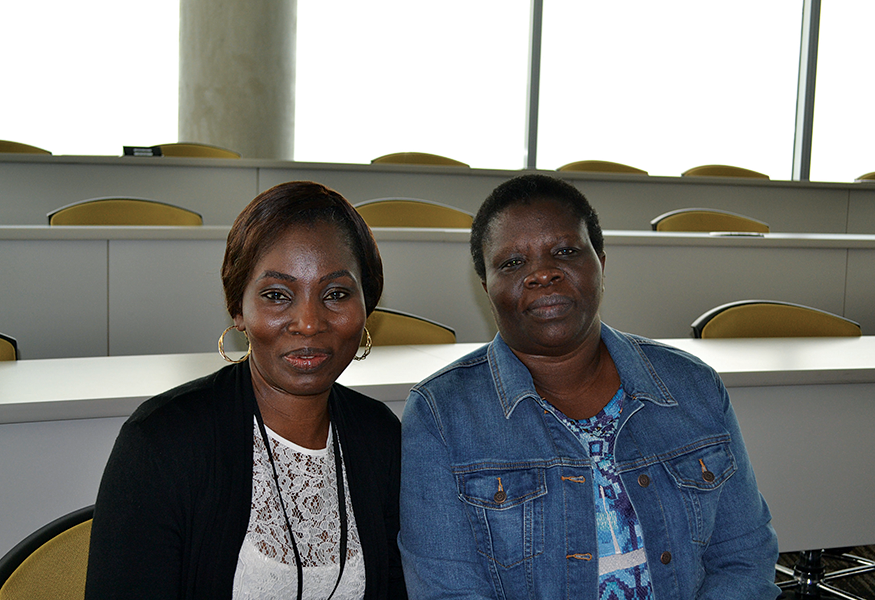For Nigerian pharmacists Titilayo Fakeye and Omolola Nwokoma coming to America to participate in the FIP foundation's Pharmabridge program at the University of Colorado Skaggs School of Pharmacy for one month has been "without reservation -- great."
Back home, both practice pharmacy in different settings. Fakeye is an academic and teaches and lectures at the University of Ibadan. Nwokoma is a clinical pharmacist with the Federal High Courts Staff Clinic.
Fakeye says, "In academia, the major difference between the U.S. and Nigeria is that in the U.S. teachers are practitioners. That's not the same at home." For Nwokoma, "We have a long way to go in the hospital setting, especially when it comes to specialization. I'm fortunate that I have built a strong relationship with a physician. So, he relies on me and allows me to prescribe or make recommendations. That is not normally the case and in fact is not legal in my country. But the physician has faith in me to know where to draw the line in terms of care."
According to Nwokoma, "I believe that this program will help us to be better pharmacists and impart knowledge that we have gained to our fellow pharmacists back home and other neighboring countries."
Pharmabridge® is a voluntary initiative aimed at strengthening pharmacy services in low-income and emerging countries. Pharmabridge was established to link individuals and institutions together to actively exchange resources and training in pharmacy practice, pharmaceutical science, pharmaceutical industry and professional pharmacy education. Supported by the International Pharmaceutical Federation (FIP), Pharmabridge was founded in 1999, to foster communication and exchange of information, resources, and experiences between pharmacists, pharmaceutical scientists, and pharmacy educators from all corners of the globe, leading to better pharmacy services, improved patient care and enhanced community health. The Pharmabridge project aims to strengthen pharmaceutical services and pharmacy education in developing and transitional countries through coordinated support from pharmacy establishments in developed and more advanced developing countries. This is accomplished by establishing institutional and personal links between schools of pharmacy, pharmacists associations, drug information centers, hospital pharmacies and individual pharmacists.
What will they take home with them?
Fakeye says her take away from the experience is the teaching methods, which she says, "will be implemented when I get back home." Objective rubrics and encouraging students to do a lot of work on their own, as well as encouraging her students to be life-long learners are what she plans on embracing upon her return.
Nwokoma says that the philosophy of patient-centered care, better treatment outcomes, and collaboration across health care professions is what she will take home with her. "I believe that no man is an island and collaborating with others is best for patients," says Nwokoma.
Recently, Nwokoma has been invited to train pharmacists in Kenya, which will be a starting point for her in terms of imparting what she has gained during the Pharmabridge program. "If that's a success, then I'll be able to have an impact, and will be carrying on the legacy of Pharmabridge to others."


